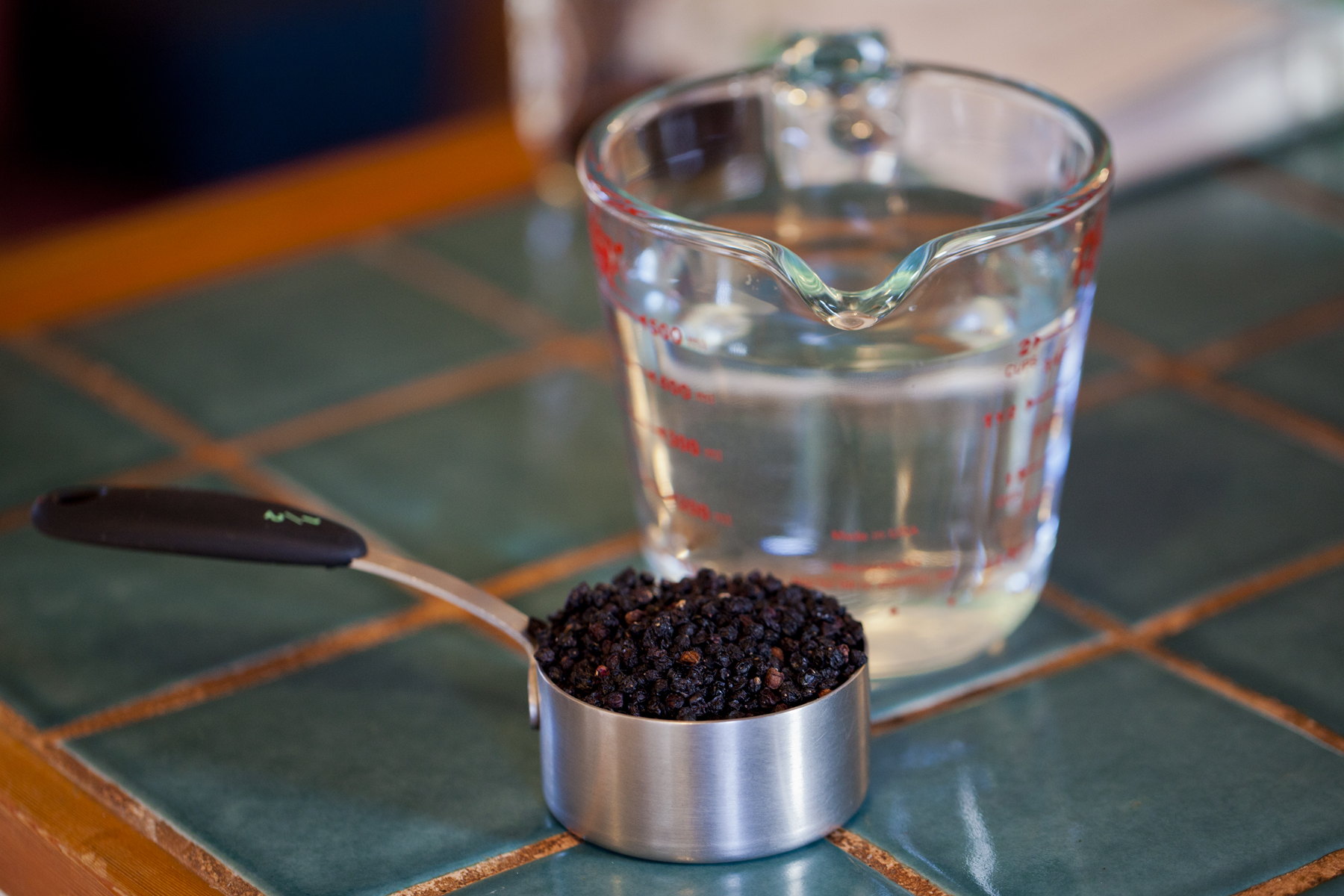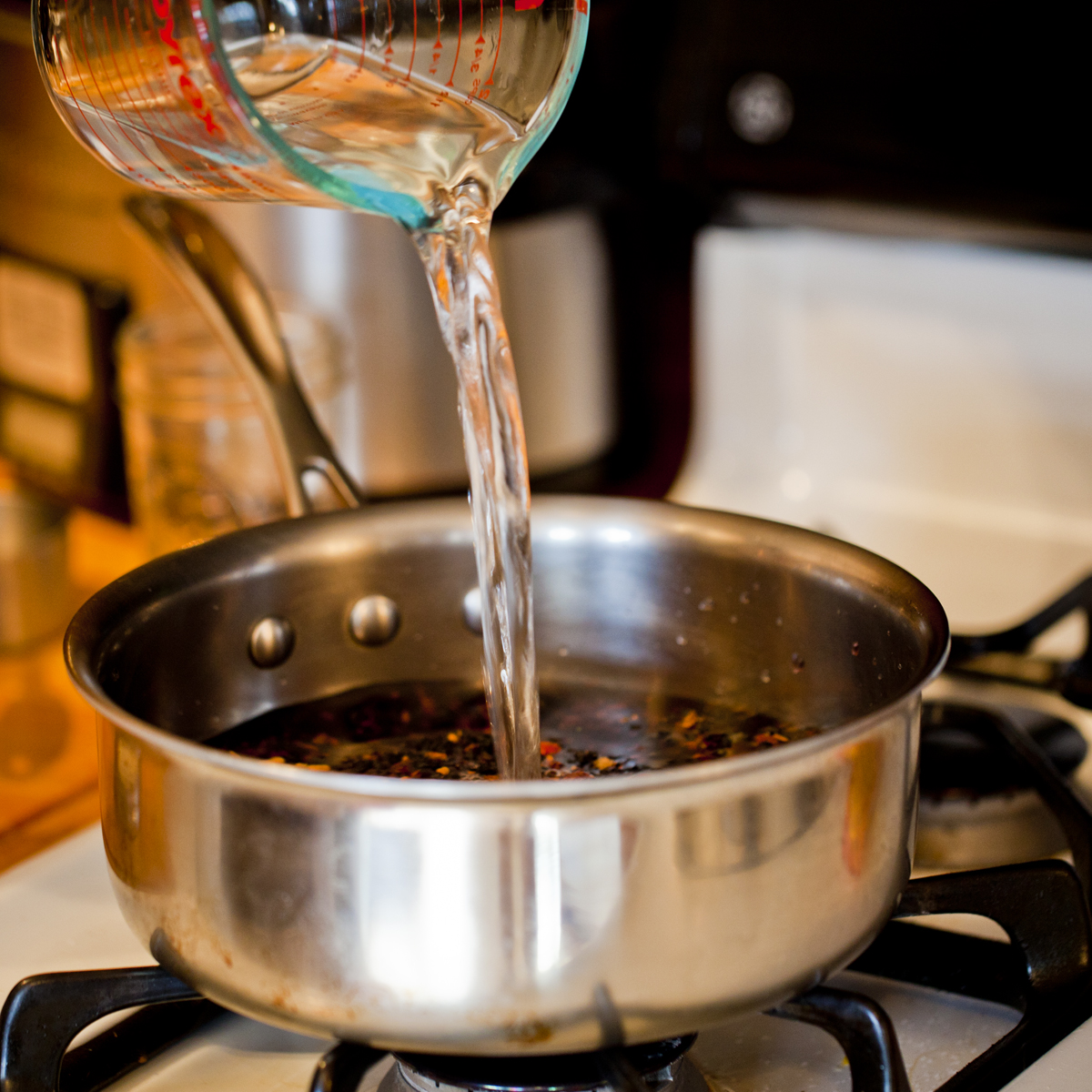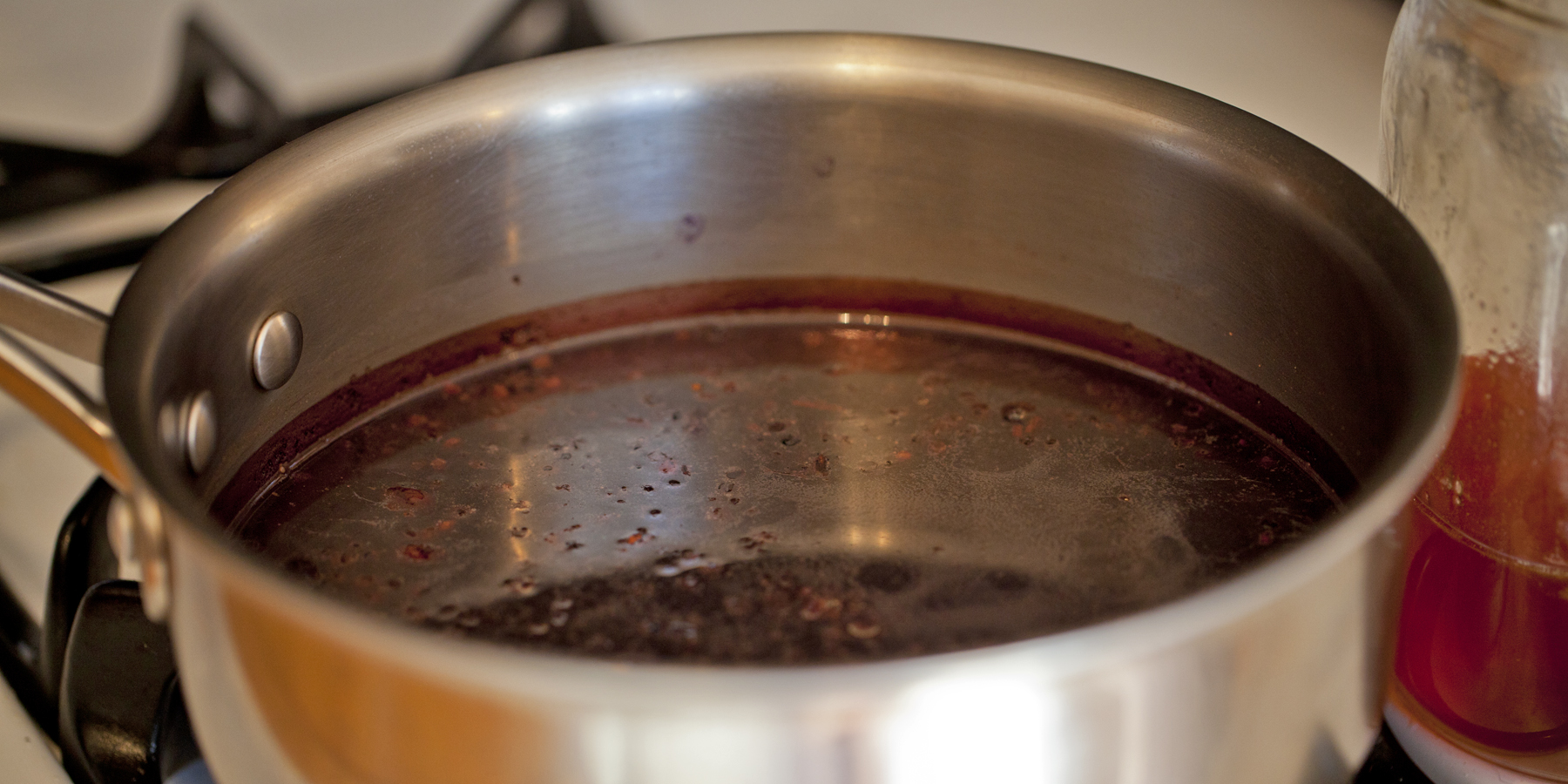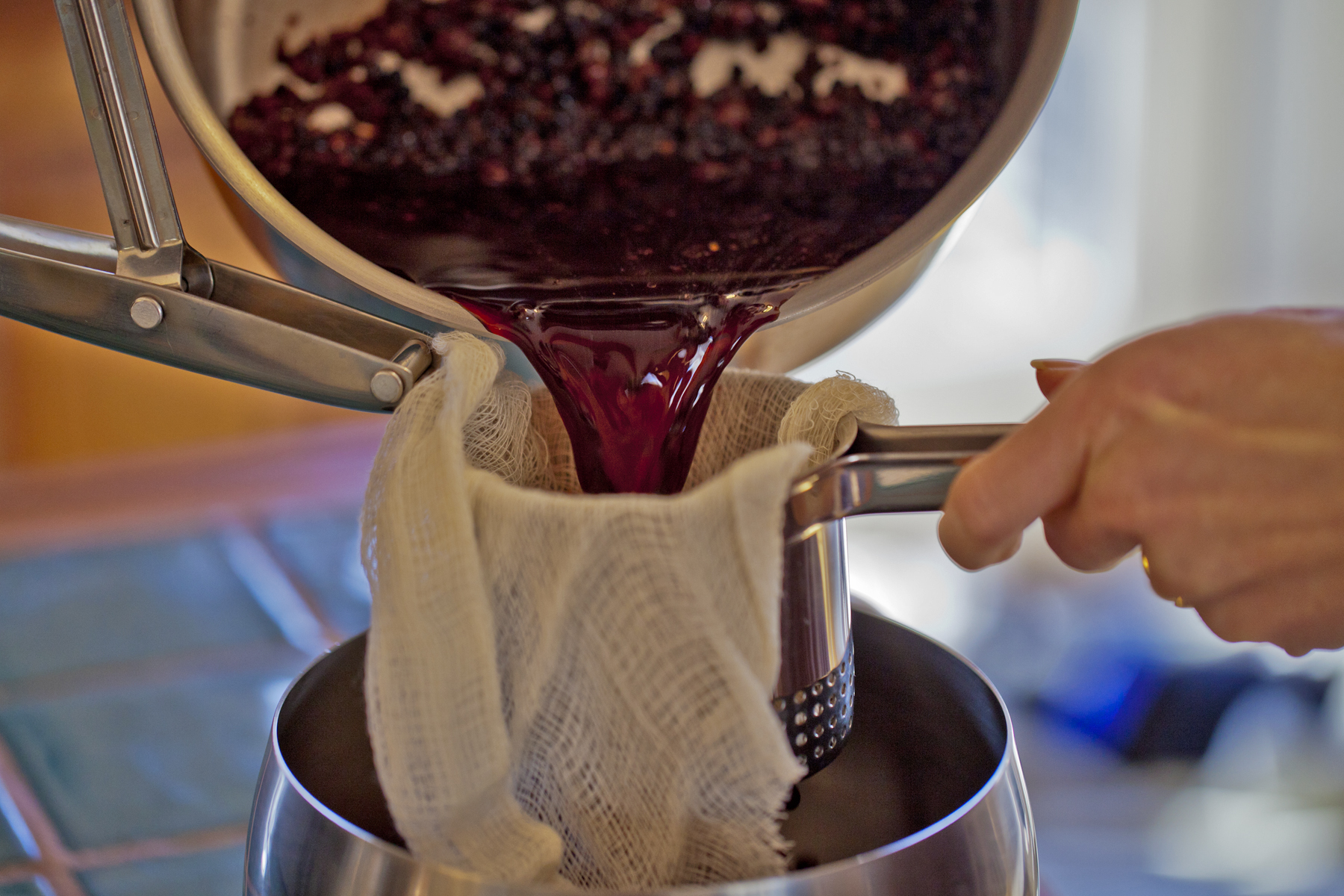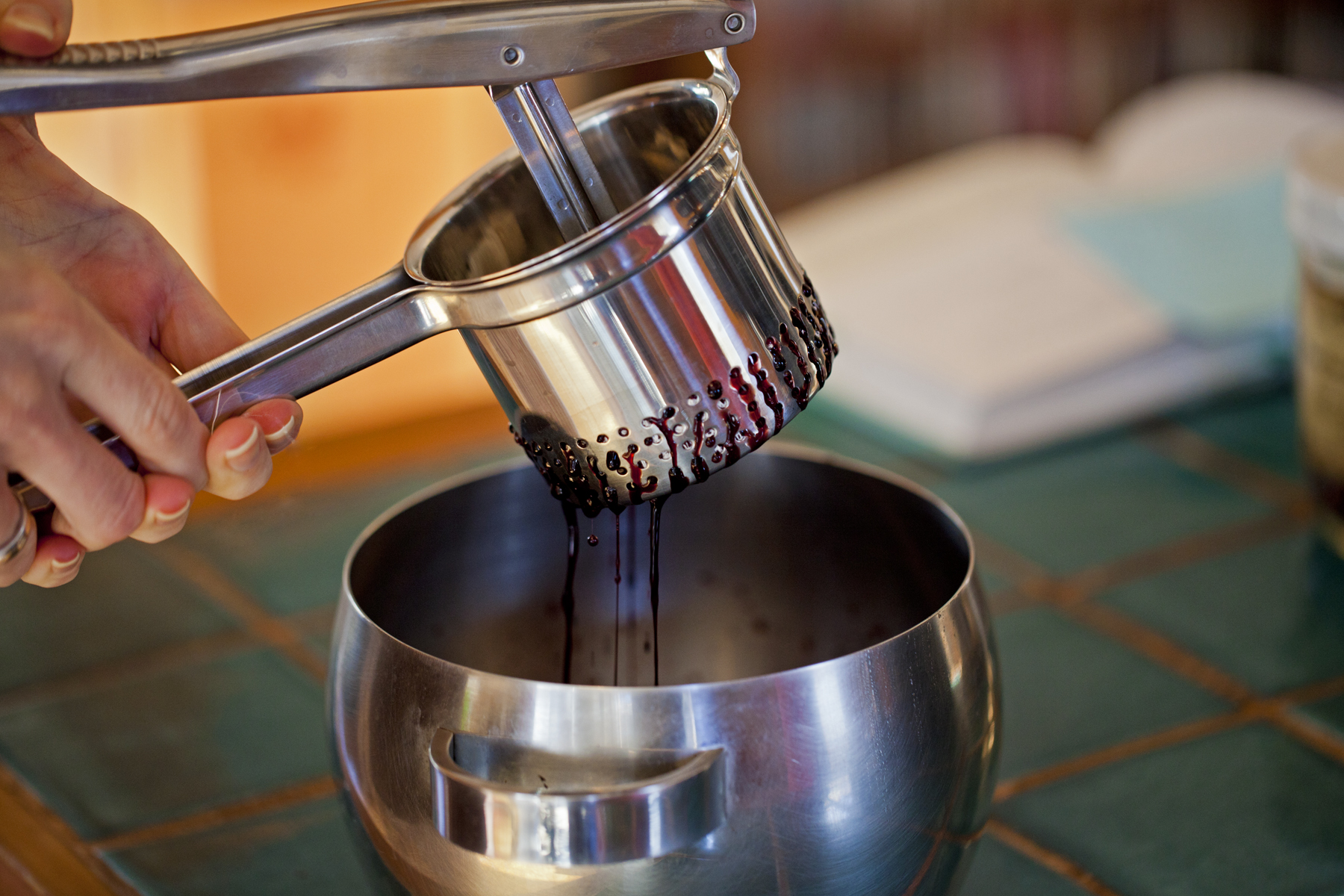Elderberry Syrup in 3 Easy Steps
/Elderberry syrup
Elderberry syrup is one of my favorite remedies whenever I have a cold or the flu. I often make batches to share with family and my brother swears that it helps boost his immune system and keeps him from getting sick. According to the University of Maryland Medical Center, "Some evidence suggests that chemicals in elder flower and berries may help reduce swelling in mucous membranes, such as the sinuses, and help relieve nasal congestion. Elder may have anti-inflammatory, antiviral, and anticancer properties."
You may have seen different elderberry remedies popping up in specialty food markets or online, but making your own syrup is incredibly easy, and it's a fun way to become more familiar with a plant that has a lot to offer.
To get started, you'll need to purchase dried elderberries (black or blue, never use red). You can buy these from your local herb store - if you're lucky enough to have one - or online from a reputable supplier like Mountain Rose Herbs.
Step 1: Put 1/2 cup dried elderberries in a pan and add 3 cups water. Simmer for 30-45 minutes.
Step 2: Strain out the berries and discard them (you've essentially made a strong tea at this point). I like to use a potato ricer lined with cheesecloth for this part since it extracts every bit of the tea. You can also just use a fine mesh strainer.
Step 3: Mix 1 cup of honey into your "tea" and you're done! The syrup will keep in the refrigerator for a few months.
I usually take a teaspoon per day as a preventative when I'm feeling on the edge of getting a cold, or a few teaspoons throughout the day if I've actually caught something. I often just take the syrup on its own or add it to tea. Sometimes I put it in a little warm milk, which is delicious! I've even added it to oatmeal.
To give my syrup even more of a boost, I often add dried hawthorn berries, rosehips and cinnamon sticks to Step 1. Hawthorn is known for its heart healthy properties. Though lesser known as an anti-anxiety herb, I personally find hawthorn to have a subtle calming effect. Suzanne Jordan, Director of Cedar Mountain Herb School, calls hawthorn the "everything's going to be okay herb." Rose hips are very high in vitamin C, so they're a great addition to cold remedies. And cinnamon, besides being delicious, is known as a warming digestive and has anti-viral and antiseptic qualities that can help fight off infection.
So have some fun with this syrup and create your own "secret blend"!
The basic elderberry syrup outlined in steps 1-3 is based off a recipe in Rosemary Gladstar's Herbal Recipes for Vibrant Health. This book is an excellent resource, particularly for beginners interested in learning about herbal remedies.

